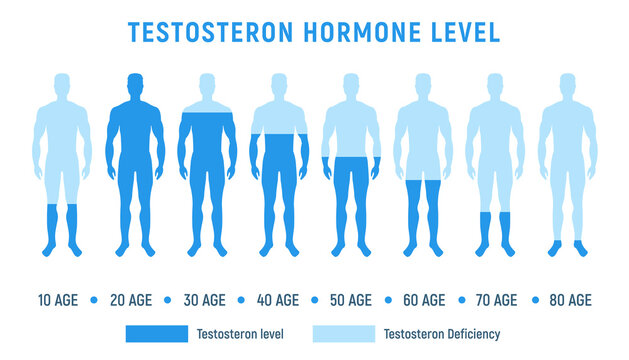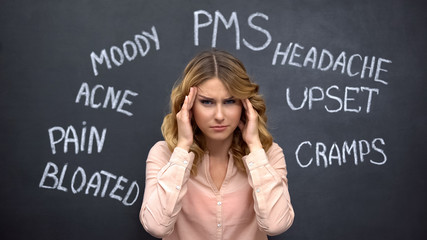
THE BENEFITS OF TESTOSTERONE OPTIMIZATION!
Common Symptoms
Increases libido
Promote better erectile function
Boost vitality, enhance energy
Support muscle growth and fat loss, and provide cognitive benefits.
Symptoms of low testosterone or “Low T”
Symptoms may include:
- diminished sex drive
- erectile dysfunction
- lack of morning erections
- soft erections
- excessive fatigue and tiredness
- lack of energy and motivation
- weight gain
- depressed mood
- anxiety
- irritability
- mood changes
- brain fog-difficulty focusing
- gynecomastia or increased breast tissue
- difficulty sleeping
If you’ve ever gone to your doctor for fatigue only to be told that all of your labs were normal, you may benefit from testosterone optimization therapy. Traditional medical models base treatment on abnormal labs and with no concern for symptoms. Testosterone labs range from 300-1000 ng/dl; this range is huge! Labs also do not factor for age related changes while your testosterone slowly declines over time. What does this mean? Just because you’re “normal” on paper, it doesn’t mean you’re optimal. Optimization of your T levels helps you get your mojo back. This means less fatigue, increased libido, stronger erections, possible weight loss, and more.
How it works?
We take into account the symptoms you are experiencing in combination with the results if your lab work. We test both your total and free testosterone along with a full hormonal, metabolic and hematological profile for a complete picture of your health. We analyze the entire picture, not just one lab value. If your symptoms and lab work are consistent with low T, treatment can begin immediately.
The normal range total testosterone level is very broad and is between 200 ng/dl to 1100 ng/dl. A man will feel quite different on either end of the range. Each lab sets it own normal range. These ranges differ between various labs and are based off population averages. Even the labs can’t agree on a number. So for example, a 35 year old male with a level of 240 ng/dl is considered to be in the “normal range,” yet this is the average testosterone level of an 85 year old! If this 35 year old male has symptoms consistent with low testosterone, then he should be treated. Most insurance companies will not pay for TRT in these circumstances.
During treatment we target men’s testosterone levels to the middle to upper level of normal. This range is typically between 700 ng/dl to 1100 ng/dl. When a man’s testosterone level is in the optimal range, it can truly be a life changing experience if he is suffering from low T symptoms.
Our preferred treatment is a once a week intramuscular (IM) injection or subcutaneously of testosterone. Many men learn how to do this during the first visit. However, injections can be performed in the office until you feel comfortable injecting yourself at home.
SO WHATS NEXT?
Schedule Your Initial In-Office Consultation
Your journey begins with a personalized consultation to discuss your symptoms, health history, and wellness goals.
Comprehensive Labs Ordered at Your First Visit
We draw labs during your initial visit to evaluate total and free testosterone, plus a full hormonal, metabolic, and hematologic profile.
Weekly In-Office Follow-Ups for the First Month
You’ll return weekly for four weeks so we can monitor how you’re responding to therapy and ensure you’re on the right track.
Ongoing Monitoring: Labs & Office Visits Every 2 Months
Once stable, you’ll have in-office follow-ups and lab work every 8 weeks to maintain optimal testosterone levels and adjust as needed.
**Labs are required for TRT prior to and periodically during treatment. Labs will be ordered and can be collected at your local Quest office. This allows you to bill your insurance if desired.
Note on Membership (Effective 7/7/25)
**Patients enrolled in the Bottumzup Health & Wellness Membership receive discounted rates on labs, visits, and ongoing hormone optimization support.
Non-members- Non-members are responsible for standard fees for follow-up visits and prescribed medications.
—>>>Ask about membership options to save on long-term care and stay consistent with your progress.
This is the ADAM or Androgen Deficiency in Aging Males questionnaire that is used as a screening tool to evaluate symptoms of low testosterone in middle-aged men
**Please click and sign Treatment/Consent below
Women’s Hormone Replacement Therapy

Hot Flashes and Night Sweats
Vaginal Dryness and Discomfort
Mood Swings and Irritability
Sleep Disturbances
Decreased Libido
Bone Density Loss
Hormone Replacement Therapy (HRT) can offer a variety of benefits for women, especially during menopause or perimenopause. Here are five potential benefits:
HRT can effectively alleviate common menopause symptoms such as hot flashes, night sweats, mood swings, and vaginal dryness, helping women maintain a better quality of life during this transition.
Bone Health: HRT can help prevent bone loss and reduce the risk of osteoporosis, a condition where bones become weak and brittle, which is more common after menopause due to declining estrogen levels.
Improved Mood and Mental Health: Some women experience mood swings, anxiety, or depression during menopause due to hormonal changes. HRT may help stabilize mood and improve mental well-being by balancing hormone levels.
Improved Sleep: Hormonal fluctuations can interfere with sleep, leading to insomnia or poor sleep quality. HRT may help improve sleep patterns, leading to more restful nights.
Protection Against Heart Disease: Estrogen has a protective effect on the cardiovascular system, and for some women, starting HRT early in menopause may reduce the risk of heart disease, though this benefit varies depending on the timing and individual health factors.
HOW IT WORKS:
Schedule Your Initial In-Office Consultation
Your journey begins with a personalized consultation to discuss your symptoms, health history, and wellness goals.
Comprehensive Labs Ordered at Your First Visit
We draw labs during your initial visit to evaluate total and free testosterone, plus a full hormonal, metabolic, and hematologic profile.
Weekly In-Office Follow-Ups for the First Month
You’ll return weekly for four weeks so we can monitor how you’re responding to therapy and ensure you’re on the right track.
Ongoing Monitoring: Labs & Office Visits Every 2 Months
Once stable, you’ll have in-office follow-ups and lab work every 8 weeks to maintain optimal testosterone levels and adjust as needed.
**Labs are required for HRT prior to and periodically during treatment. Labs will be ordered and can be collected at your local Quest office. This allows you to bill your insurance if desired.
Note on Membership (Effective 7/7/25)
**Patients enrolled in the Bottumzup Health & Wellness Membership receive discounted rates on labs, visits, and ongoing hormone optimization support.
Non-members- Non-members are responsible for standard fees for follow-up visits and prescribed medications.
—>>>Ask about membership options to save on long-term care and stay consistent with your progress.
